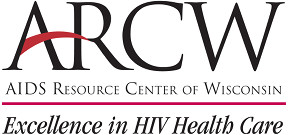 100 Days: What Are We Fighting For?
100 Days: What Are We Fighting For?
It’s the first 100 days of the new administration: what are we fighting for? NMAC’s bottom line is access to healthcare, medication, and wrap-around services for all people living with HIV. Through many administrations, multiple pieces of legislation, and revised strategies, that has always been our guiding principle. NMAC uses access as the litmus test to deal with the myriad of challenges facing our communities.
100 Days into the new Trump Administration and we’ve had to reprogram ourconferences, capacity building, advocacy work, listservs, and messaging. Revising the tone and tenor of our communications has required different messages for constituents vs. the administration. As a movement that depends on government funding, we mustwork with Congress and the Trump Administration. However, as an organization that leads with race, it is in our DNA to speak out for justice. We’ve had to learn to balance these competing needs. Here are some of NMAC’s lessons from the first 100 Days:
- Don’t Panic
- Show Up & Fight
- Hope
Don’t Panic
 Immediately after inauguration, Presidential Executive Orders threw DC into a tailspin. They made it difficult to figure out priorities and very easy to panic. After 100 days, we’ve seen that DC is a very difficult place to change. Many proposals were either tabled or stopped. Democracy is messy and challenging, and that’s exactly what our founders wanted. The initial panic has given way to a focused understanding that we have time.
Immediately after inauguration, Presidential Executive Orders threw DC into a tailspin. They made it difficult to figure out priorities and very easy to panic. After 100 days, we’ve seen that DC is a very difficult place to change. Many proposals were either tabled or stopped. Democracy is messy and challenging, and that’s exactly what our founders wanted. The initial panic has given way to a focused understanding that we have time.
In order to survive, NMAC has learned how to send out “dog whistles” to not put our movement’s funding in the crosshairs. We don’t publicly comment on everything, but that does not mean we aren’t working on critical issues behind the scenes. Part of our response has been to build new partnerships and to operate in different ways. NMAC is part of a group of agencies that has hired a firm to represent us on Capitol Hill. It’s not helpful to share what they do, but please know this group is present in more ways than we publicly discuss.
Show Up & Fight
 From the Women’s March to the congressional town hall meetings on healthcare reform, we’ve come to understand how important it is to show up and speak truth to power. We aren’t sitting on the sidelines hoping to be saved. To end the HIV epidemic, our movement must show up and fight.
From the Women’s March to the congressional town hall meetings on healthcare reform, we’ve come to understand how important it is to show up and speak truth to power. We aren’t sitting on the sidelines hoping to be saved. To end the HIV epidemic, our movement must show up and fight.
The new administration has changed the equation for activism. That’s why this year’s HIV Action Day is so important. Join us September 6th in Washington, DC to make your voice heard. We know that movements that turn out constituents are the movements that make a difference. Your movement needs you!
Hope
 The election threw me for a loop. We are so close to ending the epidemic, yet could that happen without access to healthcare? 100 days into the new administration and I am hopeful that can still be our goal. It’s going to be a struggle and we will not get everything we need, but we will also not lose everything. There are reasons to hope. The new administration has expressed its support of the Ryan White Care Act. People are fighting back for healthcare. Change is coming much slower, that gives us time to continue our work to end the epidemic.
The election threw me for a loop. We are so close to ending the epidemic, yet could that happen without access to healthcare? 100 days into the new administration and I am hopeful that can still be our goal. It’s going to be a struggle and we will not get everything we need, but we will also not lose everything. There are reasons to hope. The new administration has expressed its support of the Ryan White Care Act. People are fighting back for healthcare. Change is coming much slower, that gives us time to continue our work to end the epidemic.
Not only is this NMAC’s 30th anniversary, but I’ve also been its executive director for 27 years and 9 months (but who’s counting). I was there when our movement looked death in the face and laughed. We are stronger than any administration. There is reason to hope. Join us at USCA in September, come to the Summit in December. Your movement needs you and you need your movement.
Yours in the struggle,







